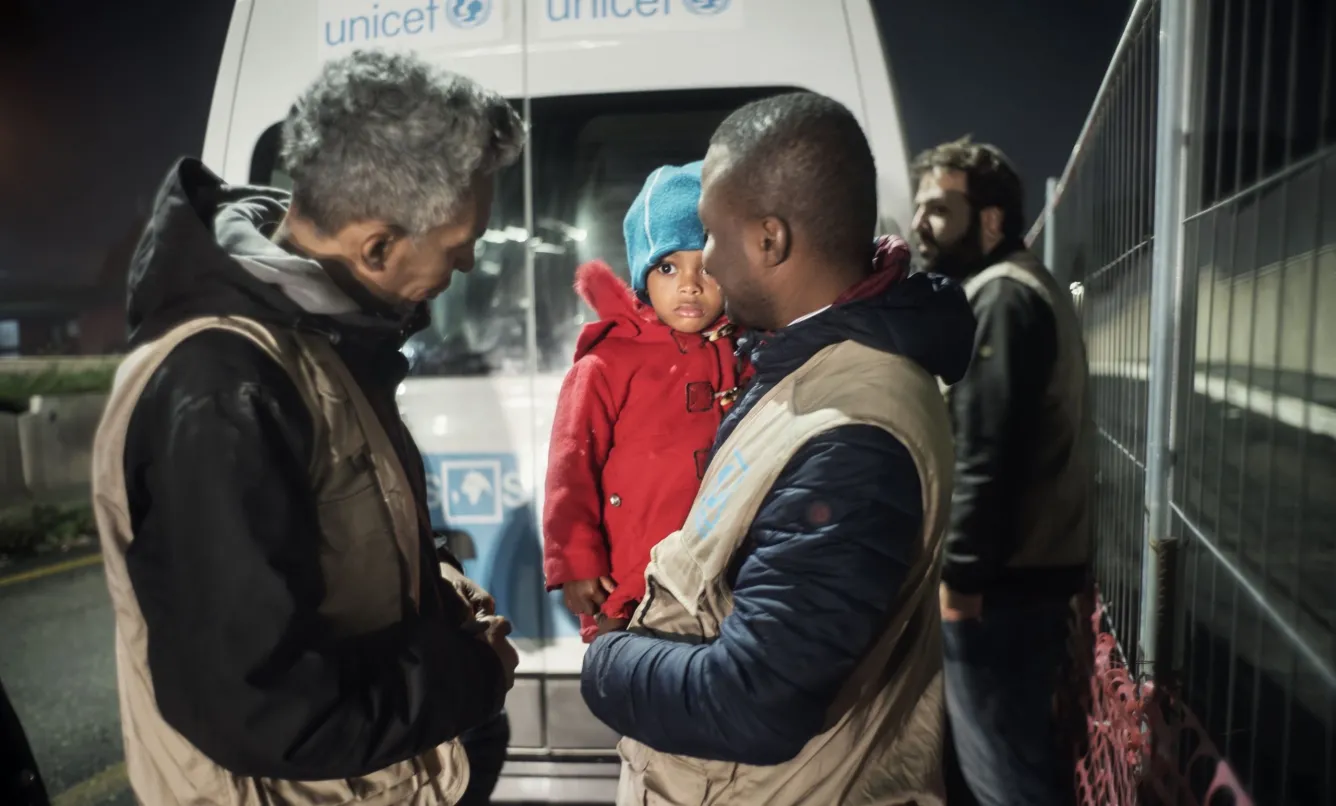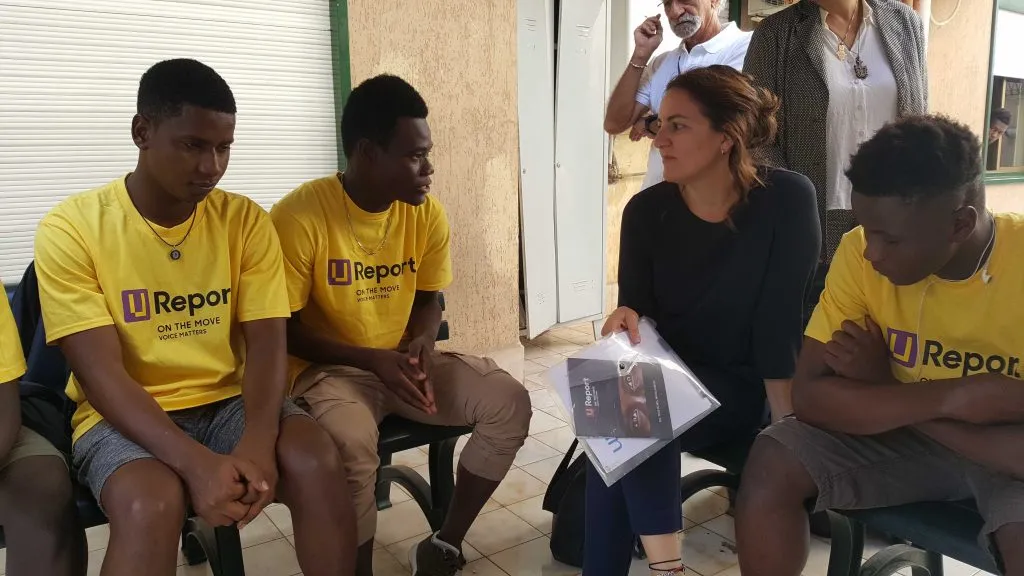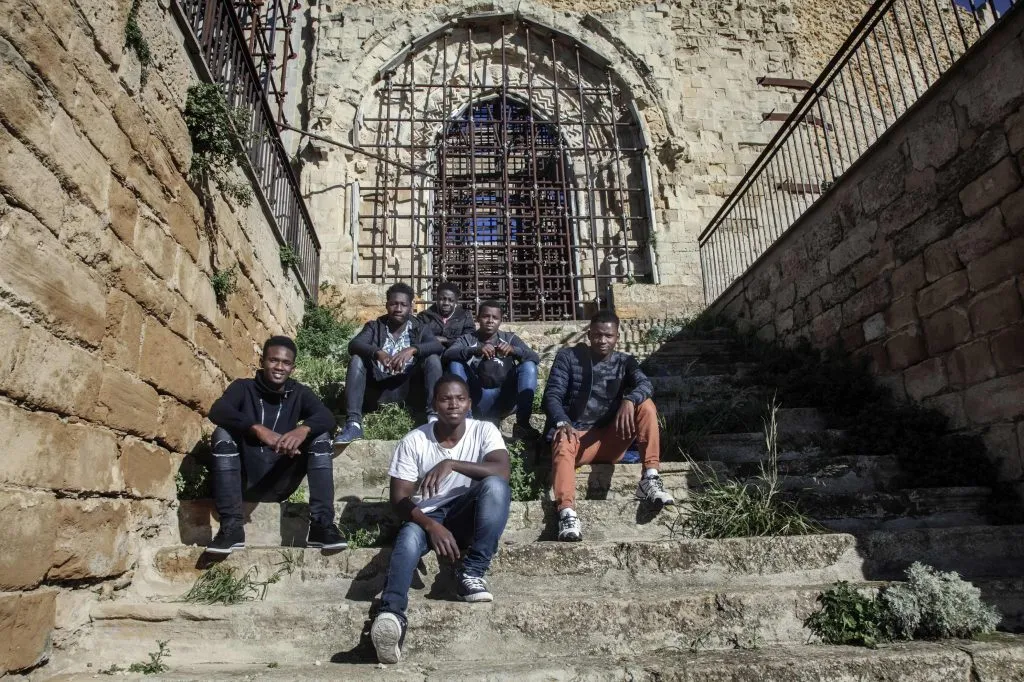Supporting Migrant and Refugee Children During COVID-19
Guest blog by Anna Riatti, coordinator for UNICEF Migrant and Refugee Response in Italy.
I don’t think many of us living and working in Italy really understood what was happening when the Government [of Italy] declared a six-month state of emergency on January 31, 2020. COVID-19 was still new.
We started getting phone calls from friends and colleagues from all over the world to check on our health and families. As the number of affected people and deaths continued to rise, the WHO declared a global pandemic. [From March 9th to May 18], the country [was] in complete lockdown.
On March 31, 2020, Italy marked a national day of mourning. [At that point] there were more than 115,000 people who had tested positive for COVID-19 and about 14,000 people who had died – more deaths than any other country in the world.

On television we see health workers in dramatic situations every day, trying desperately to cope within a strained health system. We hear the stories of people whose relatives have died, mostly elderly family members. In Italy, the elderly are pillars of society, for adults and children. The devastation we are seeing and experiencing is unprecedented for my generation, but I am conscious that I have a lot to be thankful for.
I currently lead UNICEF’s work with the Italian Government and civil society to help ensure the protection and inclusion of refugee and migrant children who have reached Italian shores. The vast majority of these children and young people arrived via the notoriously dangerous Central Mediterranean migration route.
Every day, I see UNICEF’s support of refugee and migrant children in Italy during the COVID-19 emergency, including adjusting to this new reality.
The pandemic puts these children even further at risk. In Italy, this includes unaccompanied boys and girls, young migrants and refugees as well as families with small children. Those outside formal systems remain particularly vulnerable with limited access to health care, health information and support services. But, by building on existing partnerships with Governments, NGOs and the private sector our work continues.
We support outreach teams who provide vital health screenings, distribute hygiene supplies and share information to vulnerable children and families living in informal settlements. These outreach workers put their own health at risk to make sure this work continues.

We reach young refugees and migrants with vital health information through U-Report on the Move and Facebook Live sessions. We struggle to procure critical supplies including personal protection equipment and hygiene kits for health staff and social workers.
We support remote counselling and psychological support for refugees and migrants, over the phone or online. This support extends to guardians and foster care families who need support and stress management.
Our best partners so far have been young people
Since the first day of the emergency, the young people we work with have been supporting our efforts to share prevention messages, engage with communities and advocate for every person in Italy to respect the social distance restrictions. Young people have been asking their peers to “stay at home” (often in reception centers), with some of them sending inspiring messages to their peers in Italy as well as in their countries of origin. Their civic engagement is the result of investment in young migrants and refugees, an enormous resource that societies can tap.

Balancing work and life is incredibly challenging
When the Government established restrictions, we continued operations by working from home. In an era of flexible working arrangements and widely available technology, it has become more and more difficult to separate work and private life. It is extremely challenging to organize time while juggling the needs and feelings of kids at home and the important work we are doing for children at UNICEF.
Supporting one another is essential
We all have different ways to cope with these new challenges. Some of us have lived through many emergencies, some of us worry for friends and family members, some of us have fallen sick ourselves. We all have good and bad days but supporting each other has become natural. Knowing you have a peer network, someone you can count on, who can share some tips has been reassuring. Discussing these challenges with the team and opening up has helped especially when we feel inadequate and unprepared for the situation. In many ways, this crisis is bringing our team closer together than ever before.
Things will never again be the same. This crisis will have a huge impact on our society; we already see young people who just turned 18 losing jobs, those about to turn 18 unable to renew their permits because of judicial system delays. This crisis also exacerbates past traumas: some young migrants and refugees experience isolation and frustration, some face episodes of discrimination or lack information, with girls at risk of increased partner violence, and limited access to services.
I find strength in the resilience of people in Italy, by their ability to adapt, especially the youngest generation, including young migrants and refugees who are fighting to continue peer interaction, networking, skills-building, and classes – despite deprivations – in their continued hope that Italy will offer the opportunity they seek.
